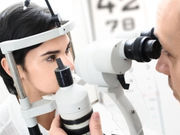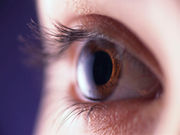After six-week contrast-rebalance AR training the stereopsis of all 15 patients was reestablished
TUESDAY, May 9, 2017 (HealthDay News) — A novel contrast-rebalance paradigm of daily-activity-based dichoptic training with an augmented reality (AR) platform appears beneficial for adults with monocular anisometropic amblyopia, according to a study presented at the annual meeting of the Association for Research in Vision and Ophthalmology, held from May 7 to 11 in Baltimore.
Wen Wen, from Fudan University in Shanghai, and colleagues examined the efficacy of the novel contrast-rebalance paradigm of daily take-home activities in restoring visual function and stereopsis on amblyopic eyes in 15 adults. The AR platform was composed of a dual camera system with a head-mounted display and an image-processing system, allowing information from the cameras to be modulated and presented separately to the two eyes. Subjects were instructed to perform their daily activities for at least 1.5 hours per day for six weeks while wearing the AR platform at home.
The researchers found that in 13 patients there was significant improvement in monocular activity, and after six-week contrast-rebalance AR training, the stereopsis of all patients was reestablished. There was a gradual reduction in the degree of suppression, and after training, the performance of the two eyes was almost equal. At two-month follow-up, significantly improved visual acuity, stereopsis, and balanced interocular suppression were maintained.
“The daily-activity-based dichoptic training with AR platform can reduce suppression and restore visual acuity as well as stereoscopic function in adult amblyopia beyond the critical period,” the authors write. “This provides a promising treatment for adult amblyopia.”
Copyright © 2017 HealthDay. All rights reserved.








